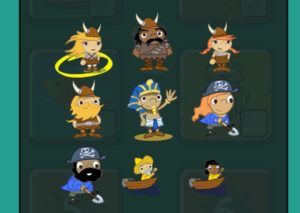
If you’ve ever wondered why you feel happier on Fridays or get excited when you win a prize you didn’t even want at a carnival, you’re not alone. Happiness, or that fleeting feeling of joy and excitement, can be complex, ephemeral, and, more often than not, elusive.
Unlike hunger, thirst, and other basic human needs, emotions can be difficult to predict and even more difficult to manipulate. Online shopping, for instance, releases a happiness-inducing neurotransmitter, dopamine, in the moment, but then leaves you back at your previous state soon after. Binge eating can also trigger temporary satisfaction, only to leave you feeling more dissatisfied than you were before.
Happiness can be complex, confusing, and convoluted, and there is so much more that scientists have yet to uncover. Luckily, scientists like Robb Rutledge, an Assistant Professor of Psychology at Yale University, are paving the way for increasing comprehension of human happiness and psychology.
Inspired by the idea that there may be a human equation for happiness, Rutledge’s innovative research is testing as many people as possible by meeting participants where they’re most plentiful—on their mobile devices.
As a huge proponent of happiness research and discovery, I decided to put their happiness project to the test—downloading the app and going through their mini-games and surveys to see what I could learn in the process about my own self and happiness.
Read on to discover my thoughts and key takeaways about “The Happiness Project”—the app-based research project with a goal to discover the equation for happiness.
My Experience With “The Happiness Project”

My journey with “The Happiness Project” began first by downloading the friendly, blue-and-yellow app, and inputting basic information such as age, gender, and location, as well as my overall life satisfaction to date. I like to think of myself as an overall happy-go-lucky person, but also find myself easily flustered, stressed, and anxious. As I set out to participate in the study, my hope was to figure out why my mood can be so erratic, as well as how to keep my mood consistent in spite of my surroundings.
Throughout the mini-games, Rutledge Lab included frequent check-ins to self-report the rise and fall in happiness level after experiencing certain events. I began to notice certain patterns in my responses, from loss aversion to risk-taking. Beyond that, each mini study included a further information section at the end of each game to explain the methodology behind the game and how it connects to happiness.
While at times I found the mini-games to be slightly repetitive and simplistic, I also gained some profound insight into my own personality, moods, and happiness, to make me more aware of myself and my surroundings. My key takeaways are as follows:
Key Takeaways
I Am An Optimist, To A Fault
As I participated in key decision-making games, I noticed myself opting for riskier moves even when the reward did not outweigh the risk. Maybe it was simply the low-stakes nature of the game, but I found the reward of the risks more exhilarating and worthwhile than the pain of a risk that did not pan out accordingly.
The game that tests risk-taking and decision-making in particular also studies optimists versus pessimists. As an optimist to a fault, I found my risk-taking in line with my optimistic attitude that “everything would work out in the end” (whether or not that was actually true).
Bigger Rewards Motivate Me To Take Greater Action
Similar to how parents promise dessert to encourage their children to finish their vegetables, “The Happiness Project” taught me that my work ethic is a direct result of the promised outcome or reward. As I progressed throughout their mini-games, I found that, despite the games having no real consequence in life, I exerted more effort when promised greater in-app rewards, and decreased my effort when the reward was lesser.
This mentality can be seen in many day-to-day situations, from becoming comfortable with a significant other and not feeling the need to try as hard to working harder at a job when bonuses are around the corner. While these responses are understandable, it also taught me how intentional I have to be to continuously put my best effort forward, regardless of reward, in direct contrast to the way my brains is naturally wired.
My Memories Impact My Mood
My third and final takeaway stems from a game that tests how mood and memory intersect. In finding certain actions resulting in greater rewards at the beginning of the game, I found myself repeating those actions to expect the same reward. What I realized, however, was that the past hardly ever impacted the random chance of the future, and left me frustrated at the seeming inconsistency. Now knowing this about myself, I’ve become aware of the way in which my past anxieties can inhibit future joys, for fear of repeating history. If there’s anything this short mini-game taught me, it’s that the past does not always inform the future, and I cannot let my past define me.
Overall Thoughts
Overall, I found “The Happiness Project” to be an informative, light-hearted, and fun way to support extremely important research and learn more about myself throughout the process. Whether you have five hours or five minutes, “The Happiness Project” is a worthwhile endeavor to learn a bit more about yourself, all the while playing as a chic lady Viking or Pharaoh.
Try it out for yourself and let us know your thoughts!
Also by Dana: Niksen: A Dutch American’s Thoughts On The Art Of Doing Nothing
Get more like this—Sign up for our daily inspirational newsletter for exclusive content!
__
Photo: Bongkarn Thanyakij via Pexels




